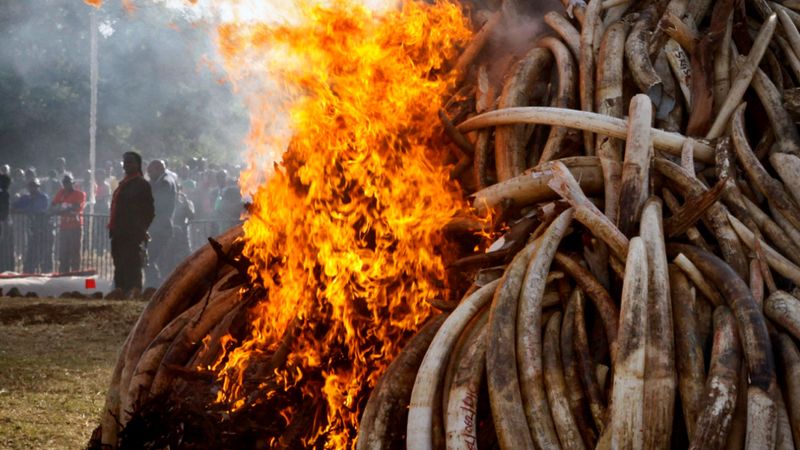They are amongst the easiest of animals around. The genteel, peace-loving, large-sized mammals, the elephants are to wildlife what a pious, God-fearing, homely grandmother is to a family. Unless really threatened and needlessly cornered, the elephants could never harm. They would not even hurt a housefly. They are friendly. They are also protective of their fellow tuskers and behemoths. They may not be agile, but they would never create a rampage needlessly. But elephants, like all other animals, deserve their peace and place under the sun.
Except, the only problem is, Africa, where they were once found in aplenty, is failing to protect the animal integral to its sphere of wildlife. Scattered in small blocks of isolated forest areas around Africa, there are about 415, 000 surviving elephants in all of the continent.
But while this may seem like a grizzly figure, it’s hardly a patch on the sheer colossal count that the elephants enjoyed a long time ago. In the earlier part of the 20th century, it’s believed that there were- at least- 3 or 5 million elephants in all of Africa.
In the many decades hence, excessive hunting primarily because of the greed for ivory- an illegal market with its tentacles around the globe, primarily Asia and Latin America- the hitherto skyward figure of elephants would begin to experience a downward spiral.
And here’s another statistic that may not be any encouraging either. Originally counted in 46 African countries, at present, the surviving elephants of Africa are only restricted to between 20-35 countries. A popular misconception has it that by simply coming hard at the hunters, one may be able to save these enormously big wild animals.
Although, some serious steps in the direction have already been implemented. By putting a complete ban on the ivory trade, it was believed that one may be able to save the bellowing pain of this wild animal. But, it’s believed, to no avail. Particularly, in the last decade- illegal poaching has brought the continent’s elephant population to the brink of extinction.
The hunting of the elephants is a problem that is deeply rooted in China, although the tremors are felt in Africa. Wondering how?
Here’s some detailed analysis of the problem.
Six months after imposing a much-heralded Chinese ban on the ivory trade, the continued killing of the giant species continues. The figure concerning the animal in the recent years is only more worrying and pointing to an imminent disaster.
According to the great Elephant consensus, it’s been established that since 2010, more than 30,000 animals have been killed, on more occasions, the wild animal being mauled and butchered mercilessly. Originally, the Chinese law introduced in a bid to keep a tab on the illegal poaching and hunting of these animals was perceived to be a game changer.
But the reality is far ahead from what was conceived. The tiger economy of Asia is considered a prime market for selling ivory-made lockets and trinkets. Anything alluring, decorative and ornamental is considered a prime hot seller in this part of the world. The only problem, though, however, is that, in order to feed a hungry Chinese audience, ever willing to grab anything made out of ivory, there’s a dip experienced in the count of elephants back in Africa.
This, indeed, is a bizarre connection. Even the conservationists, who had seen the imposition of the ban on ivory trade had predicted the measure as being the best-possible move to save the waning numbers of a wild animal. However, the sorry state of affairs continue.
The hewn from the elephant tusk is considered pure solid gold when it comes to possessing medicinal values. It has a big market out there in China. The illegal nexus of African hunters and wild poachers with their Chinese counterparts, therefore, continues to mushroom, forming a dangerous clout around the surviving African elephants.
Back in 2015, Kenyan authorities came out with strong measures such as engaging in an out and out war against elephant-poaching by executing an anti-poaching drive. Whatever ivory was collected, having been extracted dangerously from the grieving animal was burnt to ashes. But such measures have been too far and few.
What doesn’t help one bit, in putting an end to this harmful, rather sinful activity is the presence of corrupt African officials who are manning country borders. Their siding with poachers allows the illegal hunters to escape. The crime syndicate, therefore, is only growing in number.
When can one expect anything less redundant than what’s already happening across Africa? Can the authorities at a pan-Africa level be expected to act more alert in order to let this harmless animal breathe?


